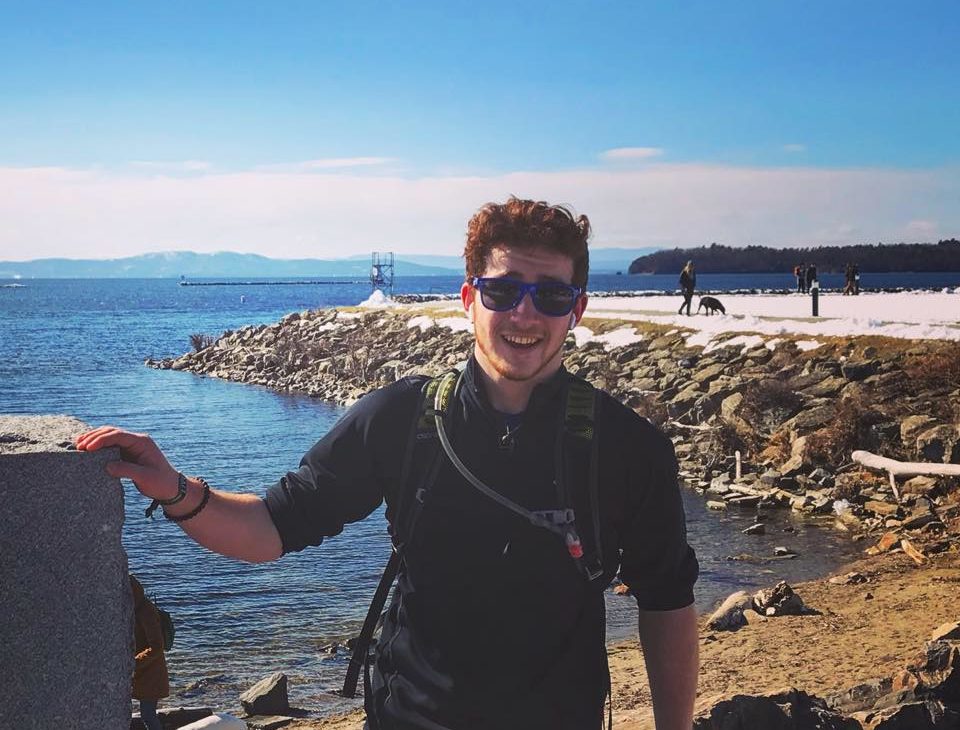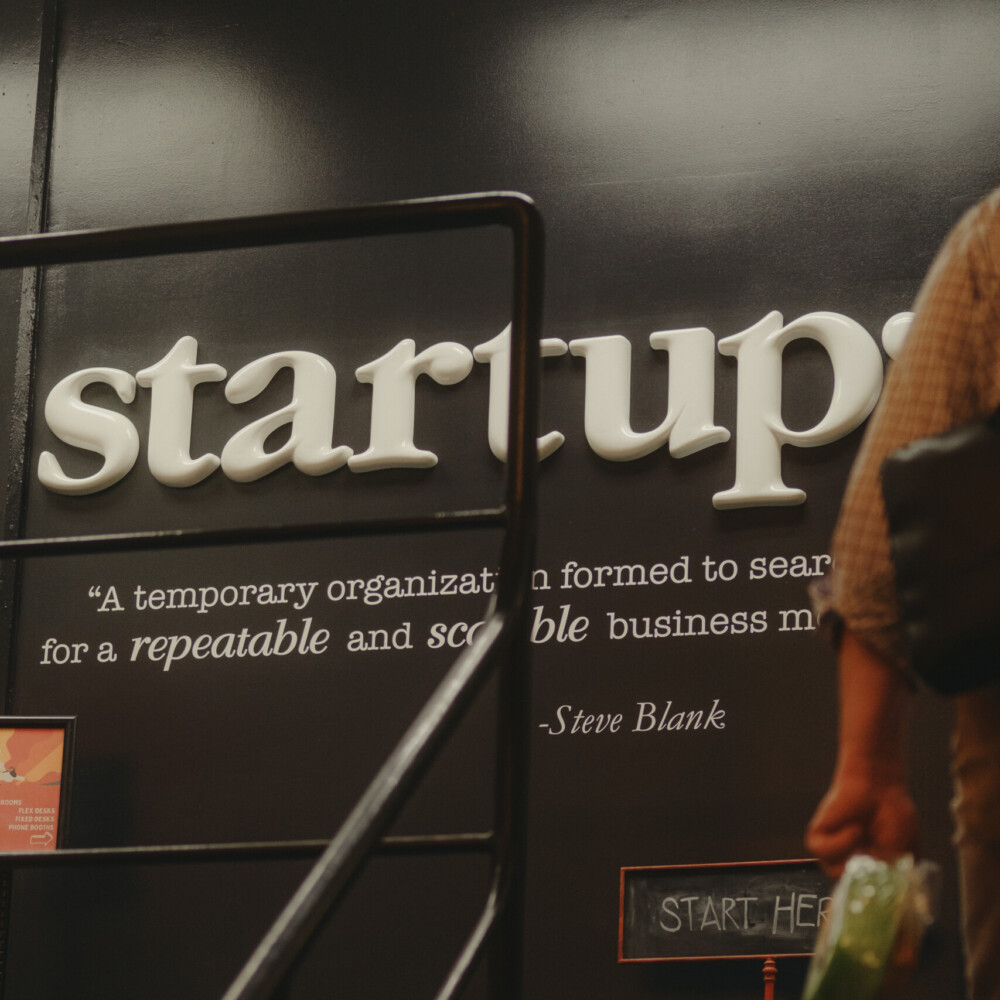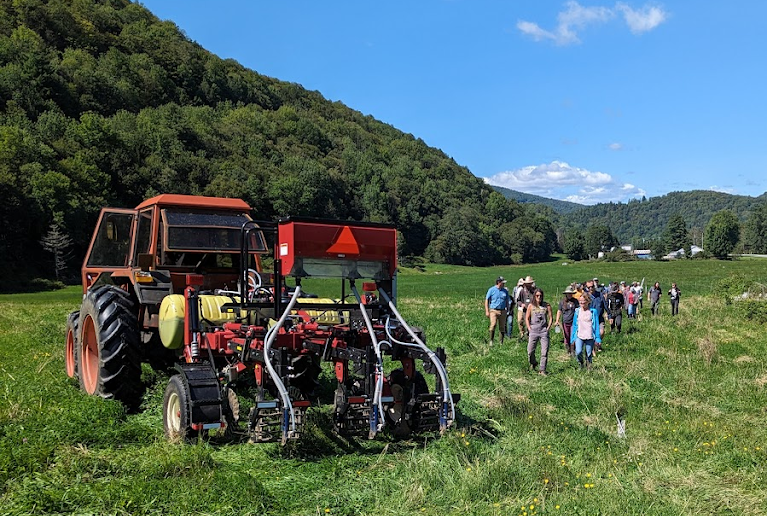
Skylar Bagdon, PanicMechanic
Skylar Bagdon, Head of Business Development at PanicMechanic
Who?
Skylar Bagdon, a student entrepreneur at the University of Vermont (UVM), sits down with VCET to update us on his latest accomplishments. He was previously known at VCET for his role as co-founder and CEO of Power Scavengers but has recently put that on a temporary hold to focus on being the Head of Business Development at PanicMechanic, a digital treatment option for panic attacks. Skylar self-designed his major of sustainable technology commercialization, and wants to learn what it takes to design new technology and bring it to the market in a way that doesn’t hurt people or the environment. “My career path focuses on engineering and technical development, software development,” explains Skylar, “and also a heavy emphasis on business entrepreneurship with a focus on social and environmental responsibility.”
Why did you choose your specific major?
“I started at UVM as an engineering major in 2017 and absolutely hated it. I ended up dropping out to form my first startup which was Power Scavengers. I worked out of VCET primarily, for about a year and a half and it was super fun, I learned a lot, and love the VCET community. I decided to go back to school because I figured there was still a lot I had to learn. There are a lot of cool connections and resources for people trying to research innovation at UVM and I wanted to be where the innovation was.”
What are your main focuses right now?
“I recently launched the Academic Research Commercialization Program (ARC Program) at UVM. The idea is to connect teams of entrepreneurially inclined students with the most promising inventions coming out of research at UVM and try to spin off a start-up. Generally, just combining the cool tech with the motivated students to create start-ups and draw them out into VCET, Hula, and the community more broadly. I’m leading one of those start-ups right now!”
Are you still a part of Power Scavengers?
“Power Scavengers was the first introduction to start-ups and entrepreneurial life for me and it was an awesome project with a really great team! We had a ton of support from the community and I’m really proud of what we accomplished, but after the beginning of the pandemic, all of our engineers shifted to work on COVID-related projects. My team and I took a step back to reflect on what we had accomplished and looked at how much time and money we were going to really need in order to launch. We came to the conclusion that we didn’t feel confident enough that it was something that we wanted to move forward with just yet.”
What are some of the lessons you’ve learned? Any advice you want to give to entrepreneurs?
“The biggest lesson we learned was [and this is very obvious but really hard to internalize] that you actually have to listen to your customers and what they want. Don’t seek validation for what you already believe is true. We did that a lot with Power Scavengers. We were really excited about our idea and in retrospect, we were trying to pivot and change the product to what customers wanted, but I don’t think we actually were. My piece of advice would be: Don’t be married to your original idea. Be really curious about what people actually want and what problem you’re solving. Get addicted to the problem and not the solution.”
What are some of your biggest accomplishments of 2020/2021?
“Definitely getting the ARC Program off the ground. I dropped out of UVM to work on bringing new, innovative, disruptive tech to the market. I wanted that as a freshman, but there weren’t enough opportunities for students to do that at UVM. The ARC Program is what innovators need. It’s fully funded with a team of students who had to apply, be taken through an onboarding process, and then be accepted into the program. It happened within the span of two months, and I’m really proud of that because creating structural change in a university, given all the bureaucracy, is extremely challenging. However, we were immediately able to get buy-in from every department at UVM, including VCET, Hula, and LaunchVT. Now I’m working with a team of six other students and we’re being paid full-time to work on impact-driven technology, specifically on an app called PanicMechanic.”
Tell us more! What is PanicMechanic?
“We’re trying to become the first FDA cleared digital treatment option for panic attacks. Around 30 million people a year in the US have panic attacks, and they can be crippling. It can affect your everyday life. When people try to seek treatment, 83% of the time they’re given care that is not evidence-based. They’re either told to calm down or take a sedative. We believe that by using data, specifically bio-feedback, we can provide better options through their phone. Right now we’re working with the Wellness Environment at UVM to run a feasibility study with over a thousand students to really prove that you can build a digital platform that reduces panic attacks.”
As an entrepreneur, what are some of the hardest obstacles you’ve had to overcome during COVID?
“I’m a very social person and I get inspiration and energy from people. Challenges seem fun and exciting if I’m working with a team, but if I’m alone in my room having to fuel my own energy, it can feel very overwhelming. Something I’m trying to do a lot more these days is realizing the value of working in person and solving problems together as a team. There’s an endless amount of kind, knowledgeable, advisors, mentors, just sitting there waiting to help you. The biggest thing I learned in COVID was that you should actively reach out when you’re struggling. Be open and honest.”
If you had a week off starting now, what would you do?
“I’d get on a plane to Iceland. I really miss traveling and I want to go somewhere international. I miss going places, so I would definitely get the next plane to Iceland. Hopefully, I get to actually do that sometime in July.”
Published and edited by VCET Marketing Associate, Nicole Mattos-Parodi.



